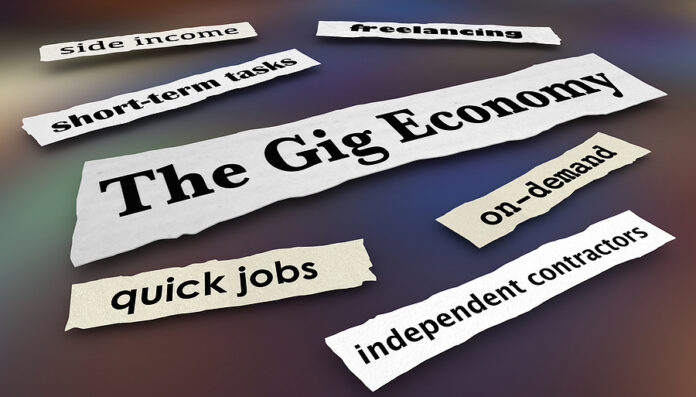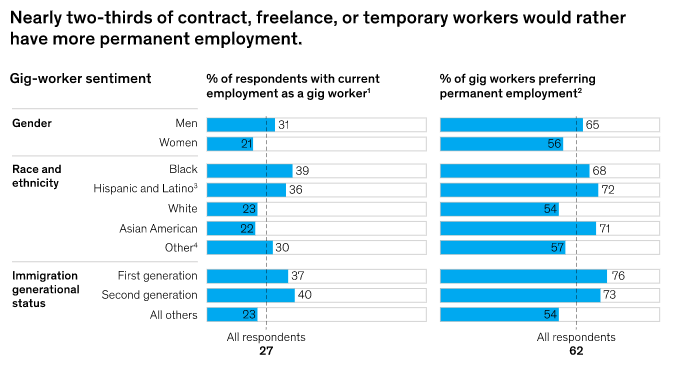
The appeal of the gig economy may have reached its peak, as nearly two-thirds (62%) of contract, freelance, and temporary workers in McKinsey’s American Opportunity Survey said they would prefer permanent employment. This sits in contrast to the 70% of executives who said in another recent survey that they intend to use even more temporary and contract workers post-pandemic.
For the latest report, McKinsey surveyed 25,000 Americans. Of the group, 27% were contract, freelance, or temporary workers. Black and Hispanic/Latino respondents, first- and second-generation immigrants, and those with less than a high school education were more likely than average to fit into this group. Respondents in these demographics were also more likely than average to prefer permanent employment.

McKinsey notes that the findings are unsurprising as gig workers were the most likely to have their incomes decrease during the pandemic. In addition, 22% of gig workers said they couldn’t afford health insurance, compared to 13% of all workers.
On a positive note, gig workers were more likely to feel optimistic about the economy than other workers. According to McKinsey, this could be due to the fact that people of color and first- and second-generation immigrants generally feel quite positive about the economy.
Finally, gig workers are enrolling in new training and educational opportunities at more than double the rate of other workers.






